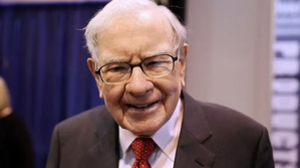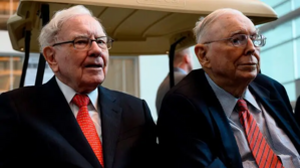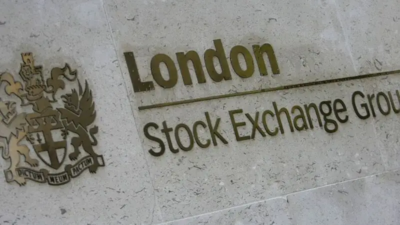Why oil prices aren’t soaring despite Middle East uncertainty
A version of this story first appeared in CNN Business’ Before the Bell newsletter. Not a subscriber? You can sign up right here. You can listen to an audio version of the newsletter by clicking the same link. Before the Bell is off Monday, February 19, and will be back on Tuesday, February 20.
When Russia invaded Ukraine in 2022, the price of oil jumped to over $100 a barrel. But despite the threat of an escalation of tensions in the Middle East and attacks on Red Sea shipping, oil markets have yet to see such moves this time around.
Oil prices spiked last month following US-led strikes on Houthi targets in Yemen in response to repeated attacks on commercial ships in the Red Sea. Crude prices have been volatile as Wall Street assesses the path for interest rates, the US dollar and geopolitical strife.
Still, they remain well off their 2022 highs. West Texas Intermediate crude futures, the US benchmark for oil, settled at $77.59 a barrel on Thursday, while international benchmark Brent crude futures settled at $82.86 a barrel.
One factor that could be keeping the cap on oil prices is waning demand. A new monthly report from the International Energy Agency released Thursday forecasts that growth in global demand will slow to 1.2 million barrels per day in 2024 from 2.3 million bpd in 2023. That comes after demand growth fell to 1.8 million bpd during the fourth quarter of 2023 from 2.8 millions bpd the prior quarter.
“Global oil demand growth is losing momentum,” said the agency in its February report. “The expansive post-pandemic growth phase in global oil demand has largely run its course.”
For some economies, however, that period of growth was lackluster. China’s economy was supposed to have a blockbuster recovery in 2023 after shuttering during the Covid pandemic. Instead, a property crisis, weak spending and high youth unemployment have caused it to stall out, and some economists believe the country could face decades of stagnation.
Other nations are facing economic downturns. The United Kingdom has entered recession after the country’s gross domestic product fell 0.3% during the final quarter of 2023, following a 0.1% decline in the prior quarter. A recession is commonly defined as two back-to-back quarters of GDP contraction but can also be characterized by other factors like high unemployment.
Japan also fell into recession unexpectedly after weak domestic consumption caused its GDP to fall for a second consecutive quarter. That was enough for Japan to lose its spot as the third-largest economy in the world, falling behind Germany.
While the US economy has stayed strong through the Federal Reserve’s punishing pace of rate hikes, some investors and economists warn that it could slip into recession later this year as Americans get squeezed by high rates and their pandemic savings dwindle.
While global oil demand growth is slowing, supply has stayed relatively strong, potentially putting further downward pressure on oil prices. The US was expected to have produced 13.3 millions bpd of crude and condensate in the fourth quarter of 2023, more than any country in history.
In addition, some key OPEC+ countries produced more oil in January than their targeted output. Iraq pumped 230,000 more barrels and the United Arab Emirates produced 300,000 more barrels, according to the IEA report.
“Higher global oil supply this year, led by the United States, Brazil, Guyana and Canada, should more than eclipse the expected rise in world oil demand,” said the report.
Donald Trump just got the green light to return to Wall Street
Months after leaving the White House, former President Donald Trump began plotting his return to Wall Street. That return, delayed by years of regulatory and legal hurdles, is now on the verge of becoming a reality — and it could make Trump a fortune, reports my colleague Matt Egan.
US regulators have finally given the green light to a controversial merger between Truth Social owner Trump Media & Technology Group and a blank-check company. The blessing from the Securities and Exchange Commission removes the last major obstacle holding back the deal.
The merger, if approved by shareholders, would pave the way for Trump Media to become a publicly traded company — and one where Trump will own a dominant stake that could be worth billions.
Digital World Acquisition Corp., the blank-check firm, announced that on Wednesday the SEC signed off on the merger proxy for the deal. A date for a shareholder vote will be set by Friday.
“It does look like this deal is going to reach the finish line now — after more than two years of delays,” said Jay Ritter, a finance professor at the University of Florida.
Read more here.
Mortgage rates rise for the second week, reaching 6.77%
After treading water for months, US mortgage rates jumped higher Thursday following a string of strong employment and inflation data, reports my colleague Anna Bahney.
The 30-year fixed-rate mortgage averaged 6.77% in the week ending February 15, up from 6.64% the previous week, according to data from Freddie Mac. A year ago, the average 30-year fixed-rate was 6.32%.
“On the heels of consumer prices rising more than expected, mortgage rates increased this week,” said Sam Khater, Freddie Mac’s chief economist.
“The economy has been performing well so far this year and rates may stay higher for longer, potentially slowing the spring homebuying season,” said Khater in a statement.
Mortgage applications to buy a home so far in 2024 are down in more than half of all states compared to a year earlier, Khater said.
“Mortgage rates have been volatile due to strong employment data, rising last week and leading to a 2% drop in applications,” said Bob Broeksmit, CEO of the Mortgage Bankers Association, in a release.
Read more here.
Maybe You Like
London Stock Exchange urged to do more to hold onto retail traders
The UK stock market needs to improve investor communication and engagement in order to retain its individual traders, according to a report from online trade and investor provider CMC Markets. ADVERTISEMENTUK retail investors are increasingly...
Hargreaves Lansdown rejects private equity takeover bid
The UK investment platform says the offer from a group including the Abu Dhabi Investment Authority undervalues the firm. ADVERTISEMENTHargreaves Lansdown has rebuffed a takeover proposal worth £4.67 billion (€5.48 billion) made...
Ferrovial set to offload UK regional airports amid Heathrow deal uncertainty
Ferrovial is planning to sell its stake in three UK regional airports amid difficulties in finalising its £2.4bn sale of a 25% stake in Heathrow. ADVERTISEMENTSpanish infrastructure company Ferrovial is reportedly putting up for sale...



























